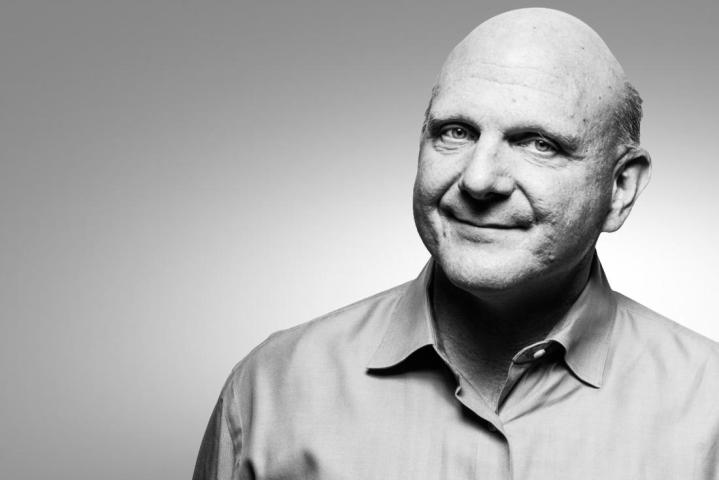
After more than a decade at the helm of Microsoft, Steve Ballmer announced on Friday that he will step down as CEO within a year. There are a lot of lessons to take away from Ballmer’s tenure at what was once the largest company in the world, but one of the biggest is the importance of marketing, and making sure to manage your own image. Ballmer was one of the most successful CEOs in technology over the last decade, but his image doesn’t reflect that; we see him for his failures and not his successes. Let me explain, and talk a little more about what Microsoft may look like after Ballmer.
Steve Ballmer’s track record
Ballmer had four problems he needed to deal with as CEO, but only two were on the table when he grabbed the reins from Bill Gates in 2000: billions of dollars in potential fines stemming from the Department of Justice’s ongoing antitrust lawsuit, and an organization that was more focused on infighting that competing. Later, he would also need to tackle two more: the rise of cloud computing and mobile devices.
If you’re an individual, you have to own how people see you; if you’re a CEO, you have to own how people see the company.
That’s not a bad track record, but Ballmer’s reputation doesn’t reflect it. Had he not crippled corporate marketing, Ballmer’s successes would have gotten more ink, and Microsoft’s shares would have likely traded far higher. Recall that much of the reason Microsoft’s share value dropped was because he moved to buy Yahoo. Even though Microsoft didn’t buy the firm, the company’s shares never really recovered. That was clearly an image problem, because the Microsoft that existed before the Yahoo attempt was the same company that existed after, only the way we valued the firm changed.
Apple further pounded on Microsoft’s image during the Vista years, and the Zune was underfunded, but still very visible. But Microsoft remained one of the most profitable companies in the world, and Bill Gates the richest man, virtually throughout Ballmer’s tenure.
What will the ‘new’ Microsoft look like?

Any of these folks, if chosen, would likely double down on cloud subscription services and back off of device efforts like Surface. Their goal would be to make Microsoft more like Google on steroids, and less like Apple. This would be consistent both with their respective skill sets, and the direction of the market. For instance, in gaming, think more like OnLive and less like Sony.
Own your image
If you look over at Apple, Tim Cook is making the same mistake that Ballmer did. He is losing control of Apple’s image, and Apple is drifting down even faster than Microsoft did as a result. If you’re an individual, you have to own how people see you; if you’re a CEO, you have to own how people see the company.
This is the one thing that CEOs like Cook and Ballmer simply don’t understand about Steve Jobs’ success. Jobs knew that image is everything, and that perception is reality. Jobs made us see Apple’s products as magical, and Microsoft’s as crap. Whoever takes over for Ballmer needs a little bit of Jobs’ magic if they want to be more successful than Steve was.
In the end, the new Microsoft will likely specialize in cloud services, with products like Office365 and SkyDrive, and less in operating systems like Windows, and hardware like the traditional Xbox. It’ll be an interesting ride. Oh, one final thing, when the market makes the next move, if Microsoft doesn’t lead it, the next CEO will likely go the way Ballmer did. The new CEO needs to own Microsoft’s image and make sure the company leads the next big technology wave. We’ll see.
Editors' Recommendations
- There’s only one use for an RTX 4080 Ti, and it’s not what you think
- Even Microsoft thinks ChatGPT needs to be regulated — here’s why
- Gaming Chromebooks with up to 144Hz panels have arrived, but they’re not what you think
- OneDrive is getting stories, but it’s not what you expect
- Hey, Bingo? Steve Ballmer nearly changed Cortana’s name in last act at Microsoft


